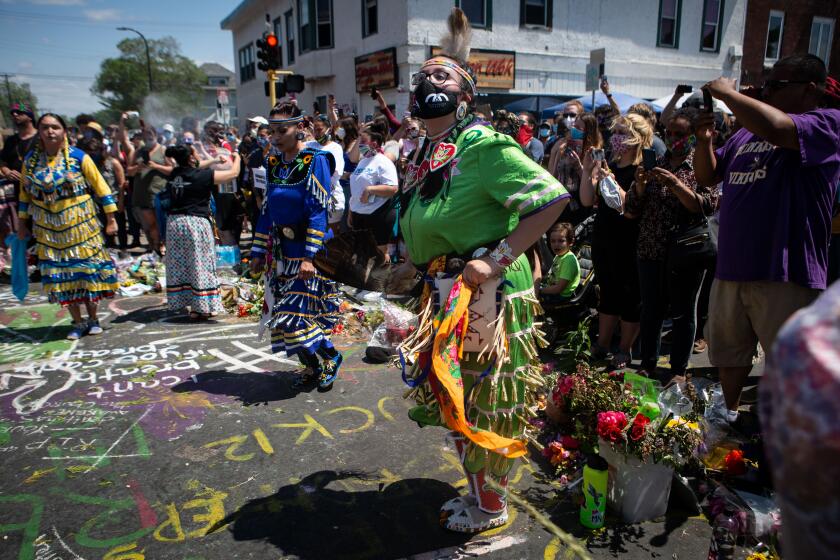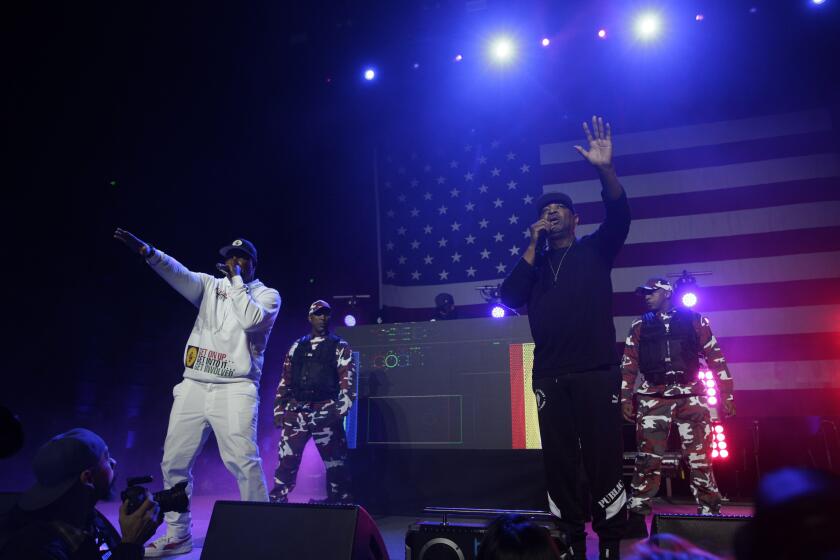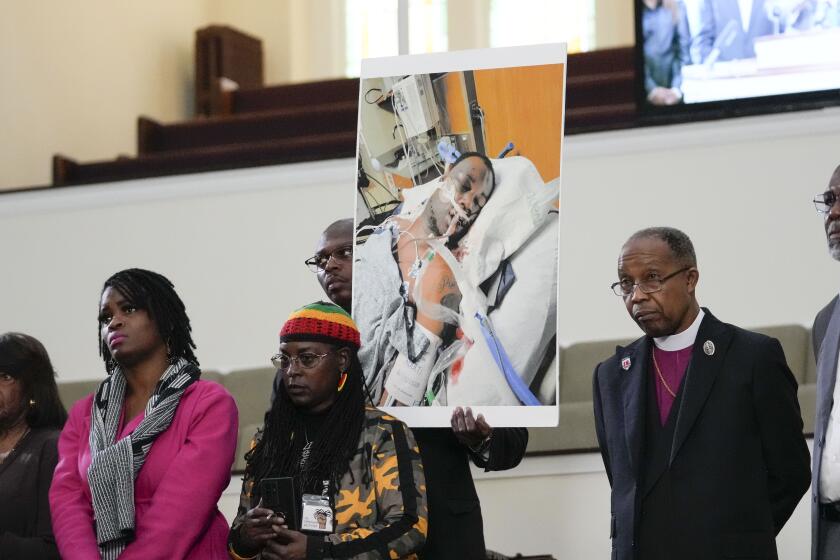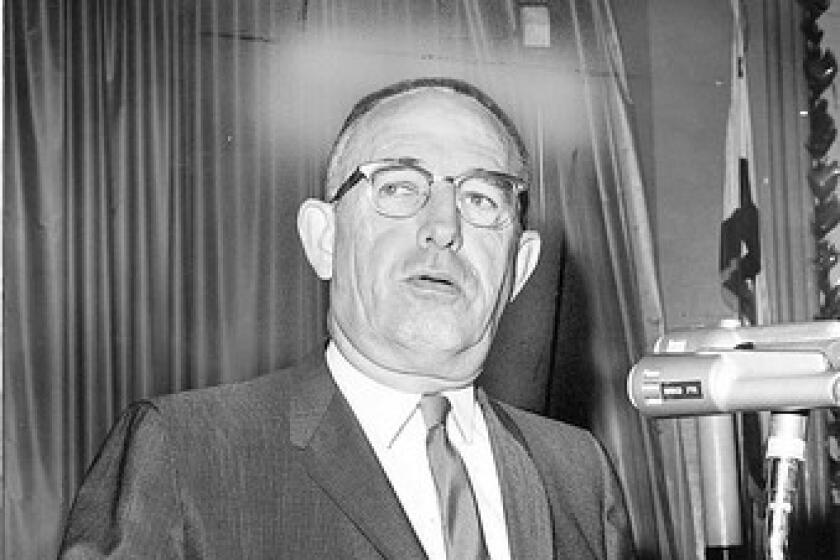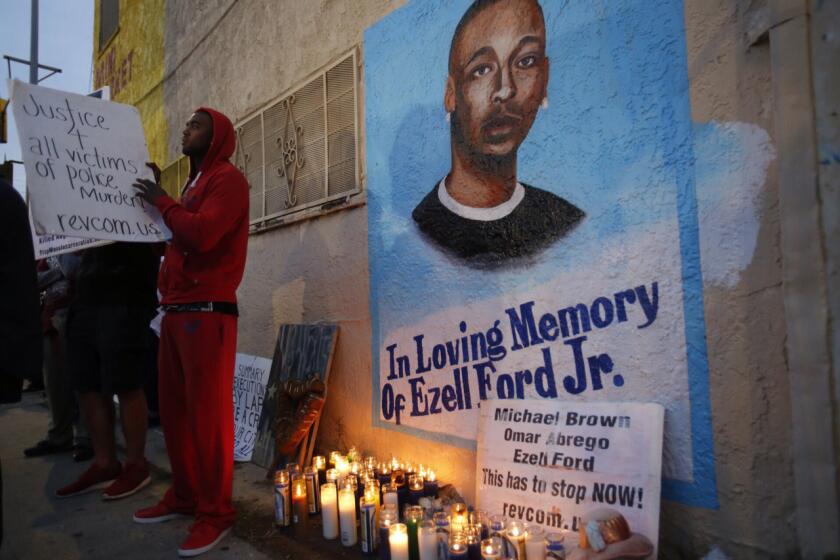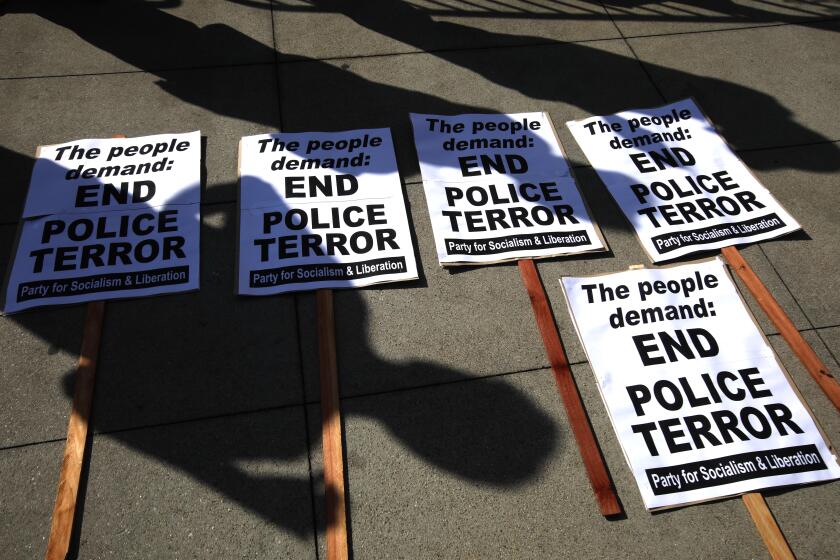Opinion: Black women are the unseen victims of police brutality. Why aren’t we talking about it?
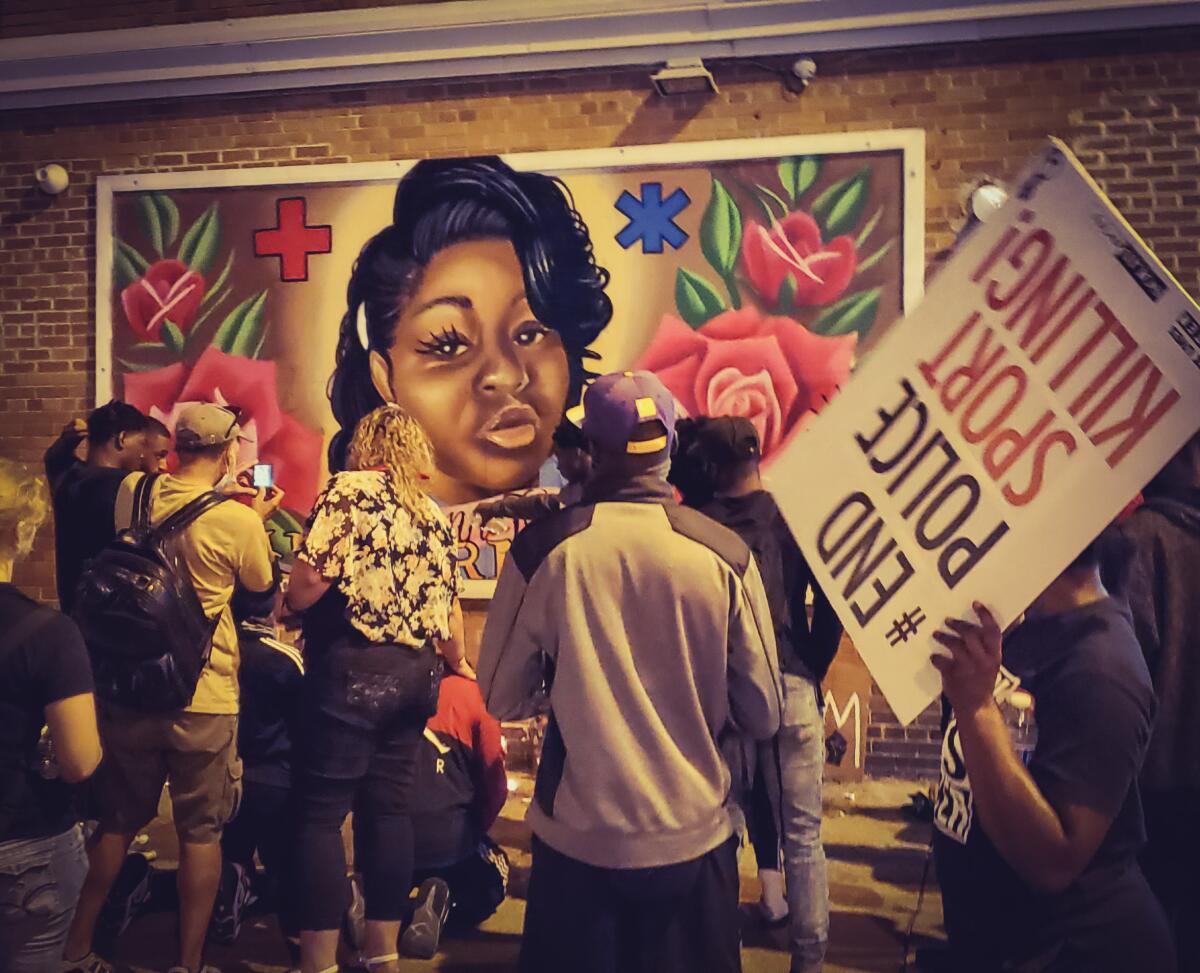
- Share via
At a WinCo grocery store in a suburb outside of Los Angeles, a Black woman is attacked by police officers for recording them on her cellphone as they held down and handcuffed her husband. A police officer then pulls this unnamed woman by the neck, flings her to the ground and kneels on her in a terrifying scene that has become eerily and tragically familiar: “I can’t breathe,” she said.
We do not know this Black woman’s name. We do know she had no weapons. We know she was not charging toward the police. We know she was standing with a cellphone. And we know, for that, she was brutally attacked.
White sympathy for the Black Lives Matter movement skyrocketed after George Floyd’s death, but it’s starting to wane.
We’ve seen this snippet before — a Black girl being thrown across a high school classroom, a Black teenager in a bikini being tossed like a rag doll, a Black woman on the side of a road being pummeled by a Los Angeles deputy, a Black woman being dragged out of her car for refusing to put out her cigarette. We may not know her, but we know her.
In America, we should ask ourselves how a Black woman who began as a bystander to an incident of police violence became the center of it. We should ask why so many others like her have been manhandled, beaten, tasered, shot, and some killed, and yet we as a society do not ask those questions. The reality is that this issue barely registers in the public discourse.
Government efforts to silence hip-hop in the ‘80s and ‘90s were just another chapter of white supremacism’s war on truth.
The confluence of factors that converge to make Black women and girls the most vulnerable of all women to state violence also conspire to erase their loss of life, both in individual cases and as a group.
Black women and girls are more likely than any other group of women to be killed by the police. Black women make up around 10% of the female population in the U.S., yet they account for one-fifth of all women killed by the police and almost one-third of unarmed women killed by the police.
Ending qualified immunity for police against civil lawsuits is one way to reduce misconduct and increase accountability.
Black women have been killed by police in their homes, in their cars, in the company of parents, and in front of their children. Girls as young as 7 and women as old as 93 have been killed by the police. That they are female and the group most likely to be unarmed when they were killed does little to challenge the all-purpose excuse that officers were in fear for their lives when they used lethal force.
Tragically, of the more than 200 instances of Black women who were killed by the police and profiled in “Say Her Name: Black Women’s Stories of Police Violence and Public Silence,” a new book published by the African American Policy Forum, virtually none of the officers involved have been held accountable.
We’ve learned a lot from the Washington Post’s database on lethal police shootings. Here’s what else we need.
The invisibility of Black women as victims of police violence is widespread, extending across the social and political spectrum. You may know the names Michael Brown, Eric Garner, Tamir Rice, Philando Castille, or George Floyd as victims of police violence, but do you recognize India Kager, Michelle Shirley, Kayla Moore, Michelle Cusseaux or Tanisha Anderson?
For those who count themselves as advocates of racial justice, not knowing that these women lost their lives to the police is not a personal failing but a conceptual one. The stories about Black women and police brutality don’t fit within the prevailing frame of reference, which is centered on men, even when it comes to racial trauma. When the facts don’t fit available frames, they become dispensable and easily forgotten.
Police brutality didn’t just spring from the minds of racist police. It reflected the will of white people to segregate. In many ways it still does.
Resisting the erasure of Black women’s encounters with the police requires an intersectional way of seeing the causes and consequences of police brutality. From the outset, the #SayHerName campaign has sought not only to recognize and memorialize the deaths of Black women killed by the police but also to uncover the interconnected ways in which Black women’s vulnerability to state violence has been normalized.
Since the summer of racial reckoning in 2020, right-wing extremists have doubled down on their efforts to erase Black history, Black voices and Black lives. They have likewise sought to censor Black feminism, Black queer studies, and intersectionality itself — caricaturing efforts to bring to the forefront the experiences of Black women and others who have been relegated to the margins of antiracism and feminism movements.
There is a twisted method to this madness.
Surely we can demand better of our police than the plethora of killings of African Americans.
Intersectionality is a prism for seeing more clearly the injustices that demagogues like Gov. Ron DeSantis in Florida would prefer to obscure. It is no surprise that he tried to ban instruction on intersectionality, even demanding that the concept be purged from the Advanced Placement African Studies course. Yet, understanding how racism, sexism and other forces intersect is critical for the survival of Black women and girls, just as critical thinking about race is a necessity for all Black people.
I am not naive enough to think that the end of police violence can be brought about by the #SayHerName movement. But what we can do is to bear witness against the policies and practices that systematically brutalize Black women, with almost no consequence.
Endemic racism, nurtured by white people, is the culprit in Memphis, but that doesn’t alleviate the anguish of seeing Black officers devalue their own without remorse.
Women like Korryn Gaines and Shelly Frey and Atatiana Jefferson deserved more. Women like the unnamed woman in the WinCo parking lot who could have died deserve more. Our society deserves more.
The first step in recognizing the value of the lives of these women might seem simple, but it is vital: Say her name.
Kimberlé Williams Crenshaw is a professor at the Columbia University and UCLA law schools and executive director of the African American Policy Forum.
More to Read
A cure for the common opinion
Get thought-provoking perspectives with our weekly newsletter.
You may occasionally receive promotional content from the Los Angeles Times.
